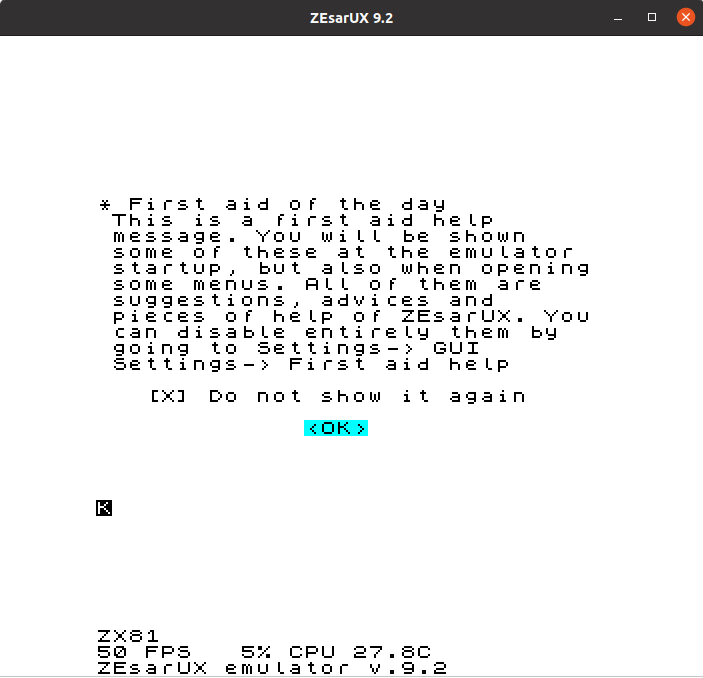Last Updated on April 22, 2022
Emulation is the practice of using a program (called an emulator) on a PC to mimic the behaviour of a home computer or a video game console, in order to play (usually retro) games on a computer.
Home computers were a class of microcomputers that entered the market in 1977 and became common during the 1980s. They were marketed to consumers as affordable and accessible computers that, for the first time, were intended for the use of a single non-technical user.
Back in the 1980s, home computers came to the forefront of teenagers’ minds. Specifically, the Amiga, ZX Spectrum, and Atari ST were extremely popular. They were hugely popular home computers targeted heavily towards games, but they also ran other types of software.
The ZX81 was a hugely successful Z80-based home computer produced by Sinclair Research and manufactured in Scotland. It was launched in 1981 and sold for £49.95 in kit form and £69.95 for an assembled computer.
It ran a Z80 processor clocked at 3.25 MHz with a mere 1KB of RAM (although many users purchased a 16KB external RAM pack). It was one of the earliest home computers manufactured in the UK.
ZX81 ROM
To emulate the ZX81 you’ll need a ROM. The rights to the ROM are owned by Nine Tiles Information Handling Ltd, who were contracted by Sinclair to write the ROM code for the ZX81 (as well as the ZX80 and ZX Spectrum).
The ZX81’s ROM was 8K in size and incorporated trigonometric and floating point functions which were missing in its predecessor, the ZX80. The ZX81’s ROM also offered a syntax checker that indicated errors in BASIC code as soon as it was entered.
There are multiple versions of the ZX81 ROM including two official ROMs: the original ROM and an improved ROM which fixed a bug in calculating the square root of 0.25.
There were also several replacement ROMs available as well as clones with a slightly modified ROM.
Recommended Open Source Emulators

ZEsarUX (shown in the image to the left) is our favourite open source emulator for the ZX81. It provides a third-party ZX81 ROM. There’s support for Linux, Raspberry Pi, FreeBSD, Mac OS X, and Windows.
The ZX81 extremely modest hardware doesn’t pose any problems from an emulation perspective. The emulator offers perfect emulation of timing together with emulation of the Chroma 81 interface, a multi-purpose peripheral for the ZX81.
Clock Signal is also a high quality emulator. It supports a wide number of home computers including the ZX81. Through static and runtime analysis CLK seeks automatically to select and configure the appropriate machine to run any provided disk, tape or ROM; to issue any commands necessary to run the software contained on the disk, tape or ROM; and to provide accelerated loading where feasible.
ZX81 software
There were many classic games developed for the ZX81. 1K ZX Chess lets you play chess without even needing a RAM pack. It wasn’t feasible to implement all chess rules in such a tiny amount of RAM so things like queening, castling and en passant capture were omitted. But it still plays a reasonable game of chess.
Almost all the classic games required a 16KB RAM pack. Notable releases include 3D Monster Maze, Flight Simulation, 3D Defender, Mazogs, and Galaxians.
Some software developers have given permission for their ZX81 software to be distributed. A good starting point is software summarised by RWAP Software.
| Home Computers | |
|---|---|
| Amiga | Family of personal computers introduced by Commodore in 1985 |
| Amstrad CPC | Combined the computer, keyboard and data storage in a single unit |
| Atari ST | A popular line of personal computers from Atari Corporation |
| BBC Micro | Series of computers designed and built by Acorn |
| Commodore 64 | Hugely popular home computer |
| Dragon | Built around the Motorola MC6809E processor running at 0.89 MHz |
| Electron | A microcomputer sported a Synterek SY6502A CPU clocked at 2MHz |
| MSX | A popular range particularly in Japan |
| Oric | The underrated Oric-1 and Oric Atmos |
| QL | Based on a Motorola 68008 CPU clocked at 7.5 MHz with 128KB of RAM |
| TRS-80 | Very early mass-produced and mass-marketed retail home computers |
| VIC-20 | 8-bit home computer that was released in 1980/1 |
| ZX80 | Predecessor to the ZX81; ignited the UK's home computer market |
| ZX81 | Low-cost introduction to home computing notorious for its RAM pack wobble |
| ZX Spectrum | One of the biggest selling home computers |
 Read our complete collection of recommended free and open source software. Our curated compilation covers all categories of software. Read our complete collection of recommended free and open source software. Our curated compilation covers all categories of software. Spotted a useful open source Linux program not covered on our site? Please let us know by completing this form. The software collection forms part of our series of informative articles for Linux enthusiasts. There are hundreds of in-depth reviews, open source alternatives to proprietary software from large corporations like Google, Microsoft, Apple, Adobe, IBM, Cisco, Oracle, and Autodesk. There are also fun things to try, hardware, free programming books and tutorials, and much more. |

1K of RAM, Sinclair you spoilt us. Or the 16K RAM pack. At any time a wobble and everything was gone. But for its day it was an incredible piece of kit.